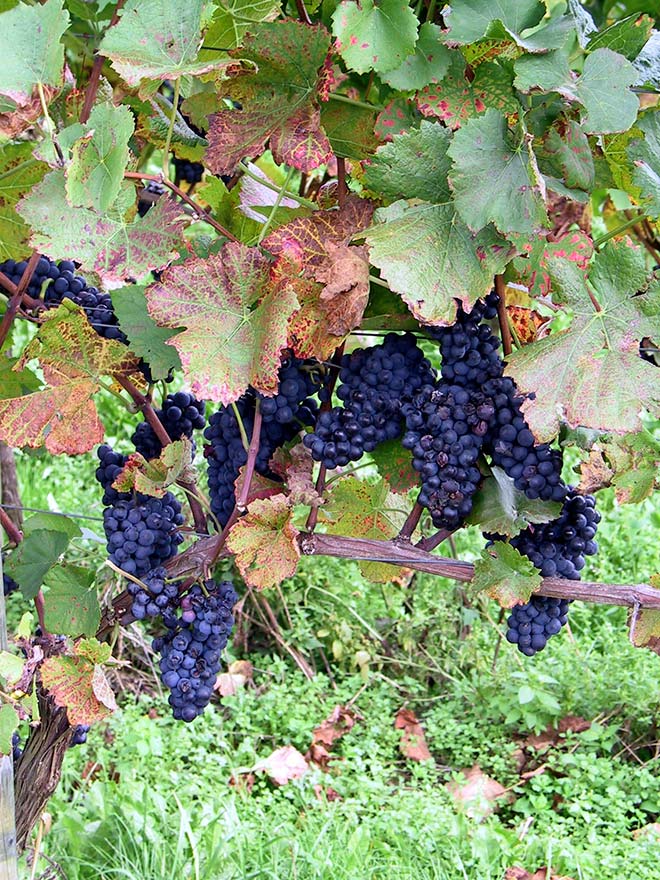Fruitfulness and Jesus
God blessed them, and God said to them, ‘Be fruitful and multiply, and fill the earth and subdue it; and have dominion over the fish of the sea and over the birds of the air and over every living thing that moves upon the earth.’ ”
Genesis 1:28
My Father is glorified by this, that you bear much fruit and become my disciples.”
John 15:8

Before moving on from the command in Genesis 1:28 to be fruitful, I’d like to examine how Jesus uses this language in John 15. There, fruitfulness serves not in its literal sense but as a metaphor for a life that is productive for God and his kingdom. According to Jesus, we who believe in him are to “bear much fruit and become [his] disciples” (John 15:8). When we do this, God the Father is glorified.
How do we bear much fruit for the Lord? If you’re like me, you are immediately tempted to make better plans, to work more, to try harder, and to do more good deeds. I think about how I can be more productive in my job. I wonder how I can be more involved in efforts to care for the poor and extend God’s justice in the world. I imagine how I can be a better husband, father, son, brother, friend, colleague, boss, neighbor, and citizen. In other words, my intuitive approach to being more fruitful is centered in my effort and initiative.
Jesus takes a different approach. Fruitfulness in life begins not with our individual labors but rather with our connection to Jesus. He is the “true vine” and we are the “branches” (John 15:1, 5). As actual branches thrive only when deeply connected to the vine, so it is with us: “Just as the branch cannot bear fruit by itself unless it abides in the vine, neither can you unless you abide in me” (John 15:4). Moreover, Jesus adds, “As the Father has loved me, so I have loved you; abide in my love” (John 15:8).
In Genesis 1, the command to be fruitful is tied to the created character of human beings. We can be fruitful because we have been made in God’s image. This continues to be true for us, even though sin has damaged our capacity for fruitfulness. Jesus, through his life, death, and resurrection, restores our ability to produce good fruit. When, through faith, we attach ourselves to him as branches to a vine, we become connected to the ultimate source of nourishment. If we remain deeply embedded in Jesus, then we will bear ample, godly fruit in life. This will be a result not primarily of our efforts but rather of the life of Jesus in us.
I might add that this understanding of fruitfulness provides a theological foundation for the Life for Leaders devotional. My chief purpose in writing these digital devotions is to help you engage regularly and deeply with Christ, whose words give life. I pray that Life for Leaders will indeed help you be a “branch” imbedded in Christ and thus bearing much fruit in every part of your life.
QUESTIONS TO CONSIDER:
What helps you to abide in Christ? Can you think of examples of fruit in your life that has grown because you are connected to Jesus the vine? How might you abide in Christ more deeply?
PRAYER:
Thank you, Lord Jesus, for your discussion of fruitfulness in John 15. Thank you for showing us that fruitful living is not so much a matter of our efforts as it is a result of abiding in you. Help us, Lord, to be faithful and fruitful branches. By your Spirit, may we be deeply connected to you. May we bear fruit for you today, at work, in every relationship, in our plans and productions. May we do everything in your name and for your glory. Amen.
Photo of grapes growing in Staufen, Germany; courtesy of Catherine Beaton.

Mark D. Roberts
Senior Strategist
Dr. Mark D. Roberts is a Senior Strategist for Fuller’s Max De Pree Center for Leadership, where he focuses on the spiritual development and thriving of leaders. He is the principal writer of the daily devotional, Life for Leaders,...


